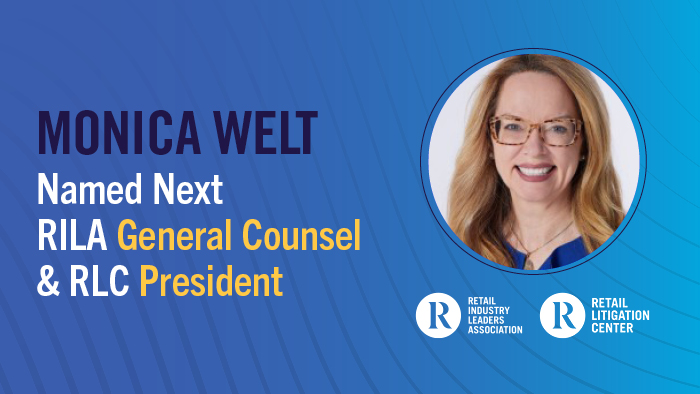SCOTUS Should Defend ERISA, Nationwide Healthcare Plans
- By [ Deborah White ]
- Washington, DC
- 02/18/2022
The Retail Litigation Center (RLC) and The Retail Industry Leaders Association (RILA) filed an amicus brief today asking the U.S. Supreme Court to settle a circuit court split over the validity of state and local employer healthcare mandates and whether or not they are preempted by the Employee Retirement Income and Security Act of 1974 (ERISA).
The case is The ERISA Industry Committee, v. City of Seattle. The RLC-RILA brief in support of the petitioner was drafted by former Secretary of Labor Eugene Scalia who returned to private practice at Gibson, Dunn & Crutcher LLP last year.
“The Department of Labor, the agency tasked with administering ERISA, has long held the position that ERISA preempts play-or-pay provisions. Retailers urge the U.S. Supreme Court to hear this case and reach the same conclusion so that local and state lawmakers are put on notice that these types of laws will not survive judicial review,” said Deborah White, RLC President and RILA Senior Executive Vice President and General Counsel.
Congress enacted ERISA in part to ensure that employers could administer their employee benefit plans on a nationwide basis without interference from inconsistent state and local requirements. Yet state and local governments continue to consider and or enact provisions that run afoul to federal statute.
“There is an irreconcilable difference between the circuits on an exceptionally important question about a federal statute that affects employers and employees across the nation,” said Deborah White, RLC President and RILA Senior Executive Vice President and General Counsel. “We need the U.S. Supreme Court to hear this case and make plain that ERISA preempts state and local play-or-pay laws.”
Play-or-pay laws generally require that an employer either “play” by providing a minimum level of healthcare benefits to its employees or “pay” that minimum amount directly to its employees or the state. Many states and municipalities across the country have enacted such laws or expressed an interest in doing so.
Mr. Scalia represented RILA in its 2004 challenge to a Maryland “play-or-pay” law that resulted in a Fourth Circuit decision holding that such laws were preempted because they had an impermissible “connection with” ERISA plans. The Ninth Circuit, by contrast, has on multiple occasions upheld similar laws after concluding that they lacked any “connection with” ERISA plans. Those decisions are in sharp conflict and create unfeasible problems for employers who administer healthcare plans for their employees.
“ERISA ensures that employers are free to choose whether and how to offer employee health benefits, without a patchwork of state and local laws,” said White. “The Ninth Circuit’s approach defies ERISA’s well-established principles and deserves Supreme Court review. Absent intervention, this pressing question will recur with increasing frequency destabilizing nationwide employer-sponsored healthcare.”
###
Retail Litigation Center
Directed by the chief legal officers of the country's leading retail companies, the Retail Litigation Center (RLC) is the only organization dedicated to advocating for the industry's top priorities in the federal and state judiciary. The RLC also works with leading law firms and retail corporate counsel to develop forward-thinking strategies to combat meritless mass action litigation. Founded by the Retail Industry Leaders Association (RILA) in 2010 as an independent organization, the RLC is a 501(c)(6) membership association open to all retailers and select law firms.
Retail Industry Leaders Association
RILA is the US trade association for leading retailers. We convene decision-makers, advocate for the industry, and promote operational excellence and innovation. Our aim is to elevate a dynamic industry by transforming the environment in which retailers operate.
RILA members include more than 200 retailers, product manufacturers, and service suppliers, which together account for more than $1.5 trillion in annual sales, millions of American jobs, and more than 100,000 stores, manufacturing facilities, and distribution centers domestically and abroad.
Tags
-
Retail Litigation Center
-
Legal Affairs & Compliance
-
Health Care
-
Supreme Court
-
Workforce



